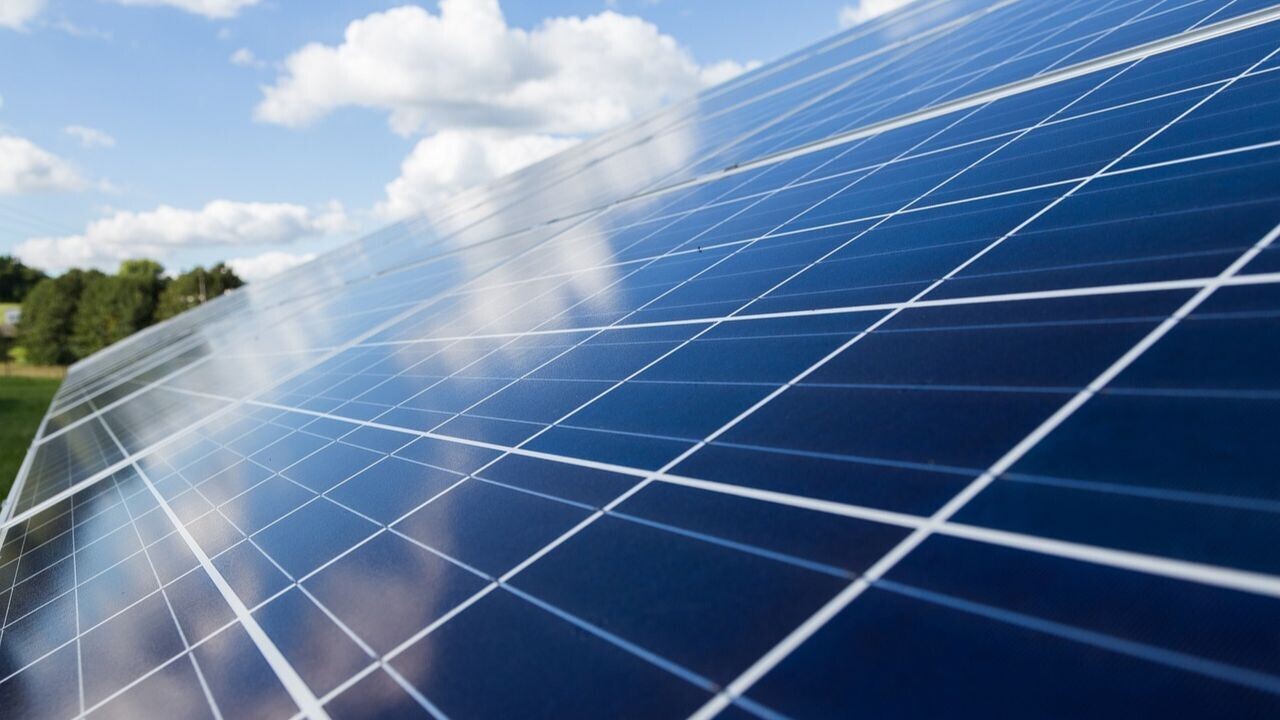
At the World Economic Forum in Davos, the EU Commission head Ursula von der Leyen stressed the bloc’s need to boost its clean tech industry and increase its competitiveness against the US and China– amidst increasing trade tensions with both nations.
The International Energy Agency (IEA) estimates that the market for mass-manufactured clean energy tech will be worth around $650 billion a year by 2030 — three times more than today’s levels. And according to Von der Leyen, the targeted net-zero transformation is already causing tremendous industrial, economic, and geopolitical shifts — leaving the EU with a small window of opportunity to invest and gain leadership in the industry.
The newly-announced Green Deal Industrial Plan (GDIP) aims to make Europe “the home of clean tech.” To realize that, it focuses on four main points: the regulatory environment, financing, skills, and trade.
The first pillar will see the creation of a regulatory framework that will simplify and fast-track access to funding and permits, focusing on critical net-zero sectors such as wind, solar, and clean hydrogen. To support this, a new Net-Zero Industry Act will set clear goals for European clean tech by 2030. In essence, it will target investments on strategic projects along the entire supply chain.
“So far, the EU taxonomy has shortcomings, hindering the inclusion and growth of innovative players,” Dr Andreas Sichert — CEO of German clean tech company Orcan Energy — told TNW in response to the GDIP. “We must harness the small window to foster innovation and clean tech and ensure their quick scale-up by creating a fertilizing regulatory environment free of blockages.”
The plan’s second focal point is to drive up investment and financing of clean tech production. “To keep European industry attractive, there is a need to be competitive with the offers and incentives that are currently available outside the EU,” Von der Leyen noted.
For this reason, the bloc should temporarily adapt its state aid rules to make them faster and simpler for calculations, procedures, and approvals — such as the tax-break option. And to ensure funding support across the entire Union, the Commission will prepare a European Sovereignty Fund.
The GDIP will also aim for the growth of the skills and skilled workers needed to facilitate the transition. It will finally seek to promote global and open fair trade.
“For clean tech to deliver net zero globally, there will be a need for strong and resilient supply chains. Our economies will rely ever more on international trade as the transition speeds up to open up more markets and to access the inputs needed for industry,” the Commission’s chief said.

While she highlighted international trade’s importance for the EU, she also stressed that “competition on net zero must be based on a level playing field.”
This echoes European concerns over the US Inflation Reduction Act (IRA) — a $369-billion clean tech subsidy package targeted for North American-made products. Since the act’s announcement, various EU leaders have voiced fears over its potential to discriminate against Union-based firms, or to lure them to the US.
“Our aim should be to avoid disruptions in transatlantic trade and investment. We should work towards ensuring that our respective incentive programmes are fair and mutually reinforcing,” Von der Leyen said.
The requirement for fair trade practices also targets China, which — according to the Commission chief — not only restricts access to its market for EU companies operating in the sector, but also encourages them to relocate there all or part of their production.
Von der Leyen expressed the EU’s willingness to find common solutions with both nations and foster beneficial partnerships. But balancing these relationships won’t come easy.
On the same day she addressed the World Economic Forum, Dutch tech industry group FME asked the Commission for “more unified action” on whether to support new US restrictions on chip exports to China, a key part of Washington’s strategy in its rivalry against Beijing.
The Netherlands is home to ASML Holding NV, a major European manufacturer of semiconductors. Some 15% of its sales went to China in 2021, translating into €2 billion in revenue, which means that adopting the US rules could negatively impact the country.

Speaking to TNW, Mark Lippett — chip specialist and CEO of UK-based XMOS — stressed that China is “tightly woven” into the global semiconductor supply chain, meaning that “any nation must be very selective when it comes to restricting certain products’ sale to Chinese companies.”
‘When your company is owned by US interests, that balance is put under severe pressure,” he added. “To use ASML as a well-documented example, the company’s American management has instructed it to ‘refrain — either directly, or indirectly — from servicing, shipping or providing support to any customers in China until further notice.’”
According to Lippett, even though the EU could afford to compensate to a certain extent ASML’s loss, were it to exit the Chinese market, the expected protection from the European Chips Act would probably not come in time for companies completely dependent on China for revenue.
And while Von der Leyen proposed “de-risking” rather than “decoupling” when it comes to the Asian country, she stressed that the EU “won’t hesitate” to investigate unfair practices that distort the market.
Overall, the EU’s position in this situation is a balancing act between geopolitical interests and fast-tracking new initiatives while maintaining focus and funding of existing ones. It remains to be seen whether and how the new Green Deal Industrial Plan will advance Europe’s goal to become a clean tech leader, but it surely must find its balance before the window of opportunity is closed.
Get the TNW newsletter
Get the most important tech news in your inbox each week.





